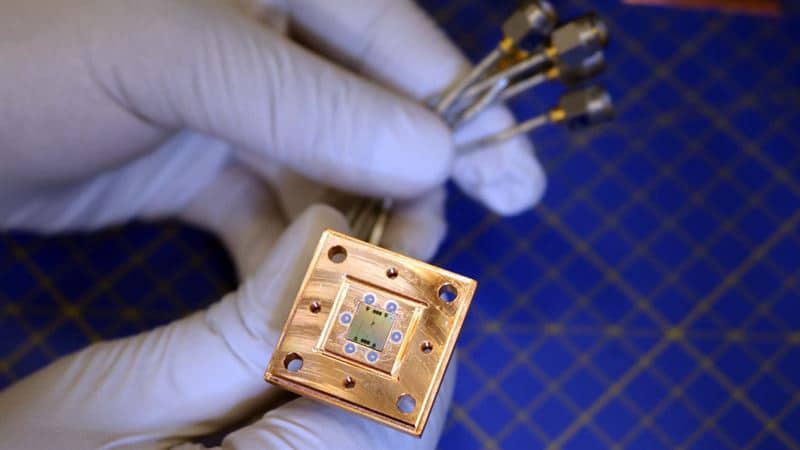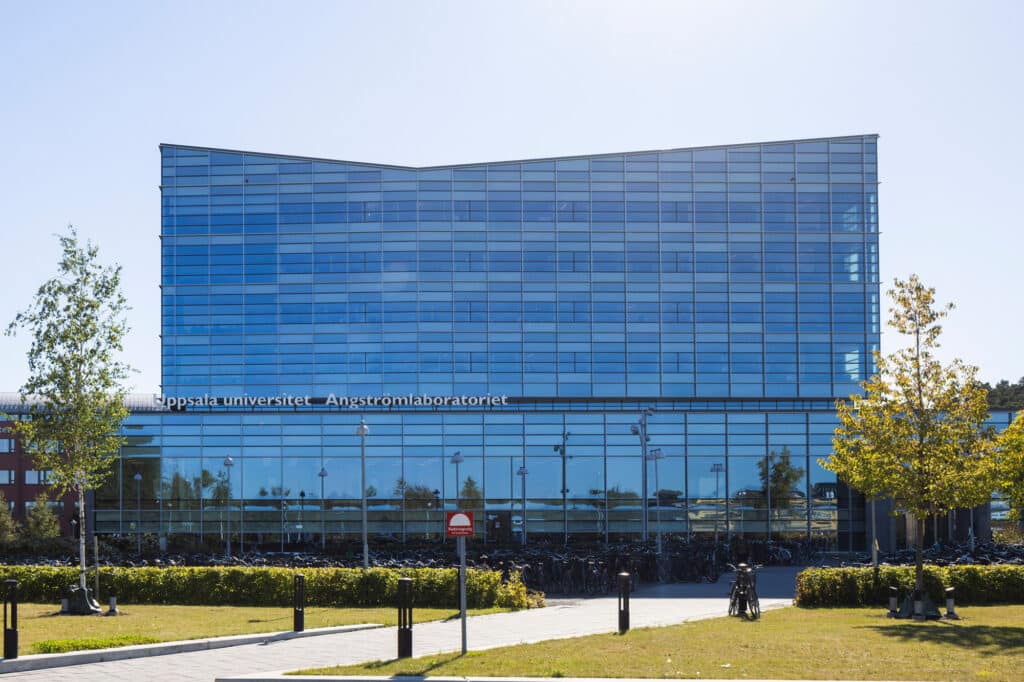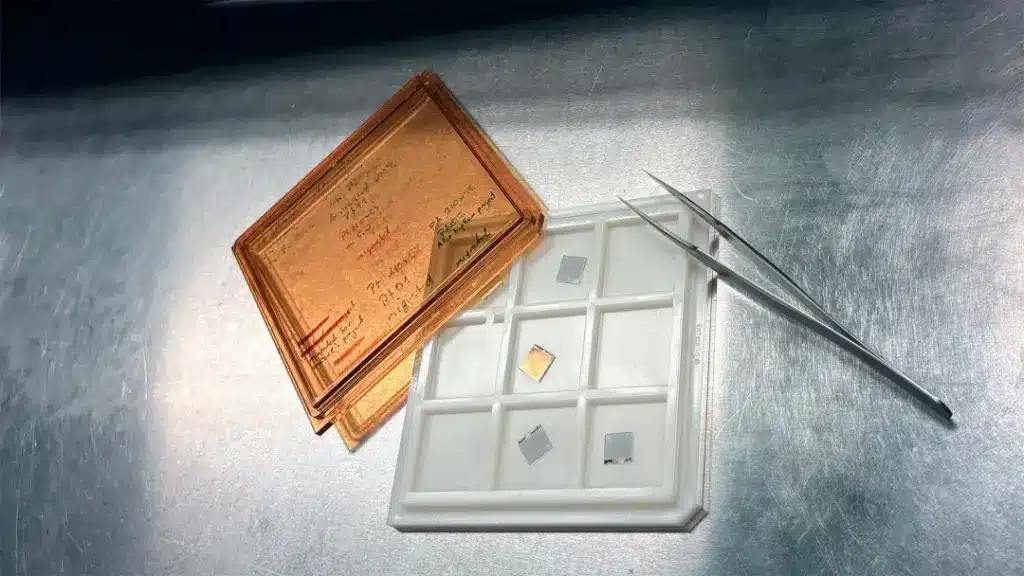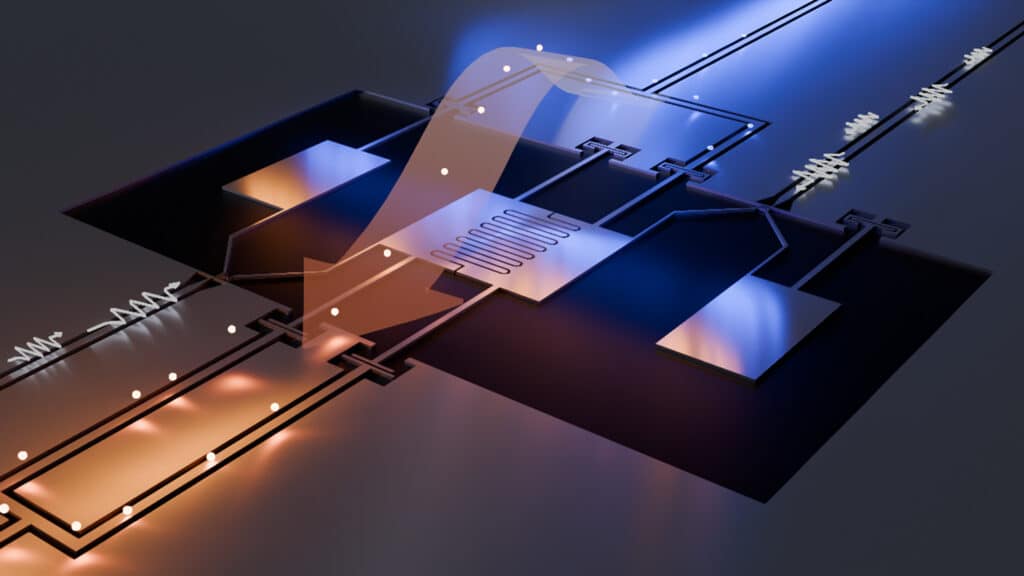Quantum computers need extreme cooling for reliable calculations, with qubits requiring temperatures close to absolute zero. Researchers at Chalmers and the University of Maryland have developed a new refrigerator that autonomously cools superconducting qubits to record low temperatures, enhancing the reliability of quantum computation.
Quantum computers have the potential to revolutionise fundamental technologies in various sectors of society, with applications in medicine, energy, encryption, AI, and logistics. While the building blocks of a classical computer – bits – can take a value of either 0 or 1, the most common building blocks in quantum computers – qubits – can have a value of 0 and 1 simultaneously. The phenomenon is called superposition and is one of the reasons why a quantum computer can perform parallel computations, resulting in enormous computational potential. However, the time a quantum computer can work on a calculation is still significantly constrained, because it spends a lot of time correcting errors.
“Qubits, the building blocks of a quantum computer, are hypersensitive to their environment. Even extremely weak electromagnetic interference leaking into the computer could flip the value of the qubit randomly, causing errors – and subsequently hindering quantum computation,” says Aamir Ali, research specialist in quantum technology at Chalmers University of Technology.





